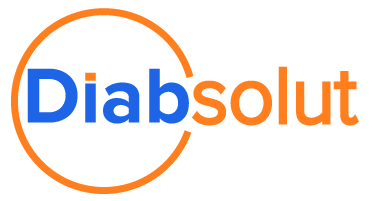Intro to Salesforce CPQ (Configure, Price, Quote) for Manufacturing
 Author: Scott McCambridge
Author: Scott McCambridge
The quoting process for manufacturing organizations can be complex. Things like fluctuations in material pricing and the amount of customization sometimes needed for products or orders can make it even more so — which is why automating quoting related processes and workflows makes a lot of sense.
Salesforce CPQ is one way to achieve that automation.
It also serves as a building block for organizations seeking more complete and accurate data through connected systems.
When set up and configured properly it integrates relevant data into the quoting process automatically — including customer details, production line information, and material costs — and ensures the data added during the quoting process can contribute to data-driven operational improvements.
It’s the combination of these things that makes it such an effective and important investment for manufacturing organizations.
In this blog, we’ll discuss Salesforce CPQ manufacturing basics, common use cases, and examples of the day-to-day functionality it can add to your overall solution.
Salesforce CPQ Manufacturing Basics
Think of Salesforce CPQ as an extension of your Salesforce CRM or platform, which enhances its out-of-the-box functionality. Its primary function is defining quotes, specifically the quote lines or products that will make up a customer’s purchase — and integrating the quote and it’s details back into the solution’s collective data.
It contributes tools and functionality that are accessed through the Salesforce platform’s main user-interface, meaning no separate system log-in is needed to achieve:
- It ensures order, specification, sales, and customer data will stay consistent across teams — including sales, engineering, production, and revenue — as well as contracts, invoices, and reports
-
- That data can also be used to optimize supply chain management and procurement
- A faster, more accurate quote-to-cash process with streamlined quoting and approvals
- The ability to more quickly pinpoint and pivot to address demand based on the inclusion of accurate CPQ data and reporting
- Inclusion of data from non-Salesforce systems that have been integrated with the platform — like your asset management, ERP, and HRIS systems — which may impact production or the quoting or delivery timeline
The key here is configuring or adapting Salesforce CPQ to meet your organization’s needs, ensuring it adheres to manufacturing CPQ best practices and is user-friendly.
From there, it’s adaptable enough to extend in a number of ways and can integrate seamlessly into your end-to-end quote-to-cash process. For example, CPQ can bring accurate pricing and configurations to a partner, distributor, or customer community by extending its functionality to Experience Cloud.
Common Salesforce CPQ Use Cases
We’ve done numerous Salesforce CPQ projects and implementations for manufacturing clients, and there are some common use cases and business requirements it helps address.
The obvious use cases are creation and management of quotes, guided selling, and true configuration and sales — but it’s also an important part of material cost estimation (supply and demand); forecasting and planning for labor, materials, and supply chain management; and order and inventory management.
As for business requirements, we’ve seen it used to:
- Reduce human error, manual processes, and duplicate data entry
- Help centralize all account and customer information
- Provide accuracy and standards for pricing and discounting
- Incorporate enhanced visibility, oversight, and approvals
- Ensure CPQ related data and reporting is reliable
- Provide a competitive customer and employee experience
- Make the lead-to-cash, opportunity-to-cash, or quote-to-cash experience better, faster, and easier
- Bridge training and skill gaps
- Lower costs and reduce revenue leakage
- Increase productivity and efficiency
- Simplify complicated tasks and calculations
- Improve solution scalability
- Overcome time and labor shortages
Salesforce CPQ Functionality
What do these benefits look like in terms of day-to-day functionality?
- Faster quote creation and convenient access to product information
- Guided selling rules and support to walk sales reps through questions that will improve their understanding of a customer’s needs, assist with product selection, and ensure product requirements are included to create an accurate quote
- Product catalogs and SKUs can be categorized and grouped into bundles for easier and faster navigation
- If material prices fluctuate, updating the costs or prices in the system will automatically amend any prices for products that are impacted
- With cost calculation enhancements complex cost formula are simple and straightforward
- The ability to more easily apply discounts when applicable whether automated or on a case by case basis
- Account information automatically populated into a quote within seconds like existing pricing contracts or distributor or partner tiers that may impact pricing that is offered
- Orders that can be finalized and ready for internal or external approvals within the Salesforce platform
- Security permissions can be set so that necessary information is readily accessible for various teams if needed (e.g., leadership, engineering, finance, etc.)
- Branded templates to help with delivery of a uniform customer experience and brand awareness
- Including integration of spec sheets and product photos
- Simple and automated contract management tracking and renewal processes
- A clear line of sight for production planning, optimization, and timelines
- Accurate reporting for leadership to easily review everything from product line performance to cost margins
Next Steps
If your organization is interested in learning more about what Salesforce CPQ can do for your business, or if you’re in need of manufacturing solution advice, contact us.
As mentioned above, we’ve completed a number of Salesforce CPQ projects that have helped manufacturing organizations find success.
Search
Trending Topics
- How Managed Services Drive Success – The Diabsolut Advantage
- Facing Challenges? Here’s How to Overcome the Top 5 Pain Points
- Understanding Personas to Improve Your Implementation of Software Solutions
- E24: SFS Roadmap Improvements for Each Persona – Java With Sugar Podcast
- Contractor Management: Building and Managing an Effective Field Service Workforce
- E23: How Salesforce Field Service Applies to Each Persona – Java With Sugar Podcast
- E22: Introduction to Field Service Personas – Java With Sugar Podcast
- The Role of Customer Success in a Professional Services Organization: A Path to Achieving Business Goals
- Addressing Customer Success Challenges in Today’s Market
- Field Service Efficiency During Workload Variations
